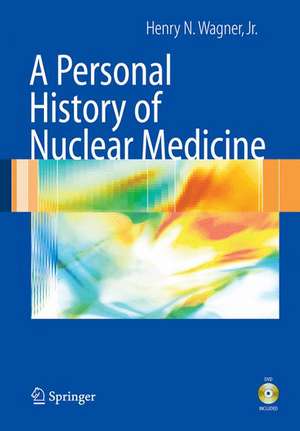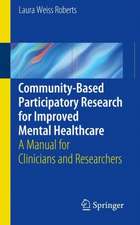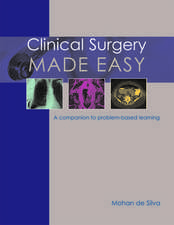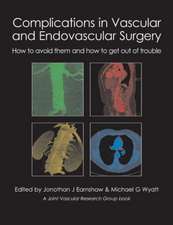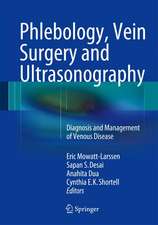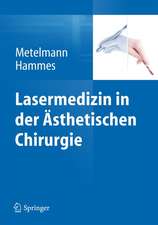A Personal History of Nuclear Medicine
Autor Henry N. Wagneren Limba Engleză Mixed media product – 13 iun 2006
| Toate formatele și edițiile | Preț | Express |
|---|---|---|
| Paperback (1) | 1341.29 lei 6-8 săpt. | |
| SPRINGER LONDON – 4 mai 2017 | 1341.29 lei 6-8 săpt. | |
| Mixed media product (1) | 1365.22 lei 6-8 săpt. | |
| SPRINGER LONDON – 13 iun 2006 | 1365.22 lei 6-8 săpt. |
Preț: 1365.22 lei
Preț vechi: 1437.07 lei
-5% Nou
Puncte Express: 2048
Preț estimativ în valută:
261.30€ • 271.77$ • 218.97£
261.30€ • 271.77$ • 218.97£
Carte tipărită la comandă
Livrare economică 14-28 martie
Preluare comenzi: 021 569.72.76
Specificații
ISBN-13: 9781852339722
ISBN-10: 1852339721
Pagini: 299
Ilustrații: IX, 299 p. With DVD.
Dimensiuni: 178 x 254 x 22 mm
Greutate: 1.03 kg
Ediția:2006
Editura: SPRINGER LONDON
Colecția Springer
Locul publicării:London, United Kingdom
ISBN-10: 1852339721
Pagini: 299
Ilustrații: IX, 299 p. With DVD.
Dimensiuni: 178 x 254 x 22 mm
Greutate: 1.03 kg
Ediția:2006
Editura: SPRINGER LONDON
Colecția Springer
Locul publicării:London, United Kingdom
Public țintă
Professional/practitionerCuprins
Survival of the Luckiest.- So You Want To Be a Doctor.- First Taste of Research.- Medical School and House Staff Days.- The National Institutes of Health.- A New Medical Specialty.- The Early Days.- The Thyroid Paves the Way.- The Breakthrough to Lung Scanning.- Computers in Nuclear Medicine.- From the Lungs to the Heart.- Growth Out of Control.- Molecular Communication.- The Fight Against Infectious Disease.- A New Approach to Disease.- The Genetic Revolution.
Recenzii
From the reviews:
"This is a personal memoir of Henry N. Wagner, Jr., MD, perhaps the most influential person in the development of clinical nuclear medicine worldwide. There has been almost no one of significance in nuclear medicine that Dr. Wagner has not interacted with in some capacity over his five-decade career in nuclear medicine. This book is a chronicle of those interactions and a description of the evolution of nuclear medicine over the period. This is a superb description of the evolution of nuclear medicine over five decades. It serves not only as a description of events and people in nuclear medicine, but also as a model for how histories should be constructed in other fields from the memoirs of influential individuals. There is no comparable book that addresses this evolution in nuclear medicine. This book is recommended for anyone interested in how curiosity about potential applications of a new science (atomic energy in this case) can be developed in medicine." (William R. Hendee, DOODY REVIEW FROM Doody Enterprises, Inc. - COPYRIGHT 2007)
"The book is of rigorous historical value. Henry N. Wagner had a very long career characterised by the excellence of his research … . he is certainly in a good position to provide an evidence-based and critically constructed history of nuclear medicine … . This is a very well written story of a life intensely lived, providing evidence that nuclear medicine can be, indeed … a great passion. Therefore, I strongly recommend this book to both expert and young nuclear physicians … ." (L. Mansi, European Journal of Nuclear Medicine and Molecular Imaging, Vol. 34 (3), 2007)
"Among physicians who specialize in nuclear medicine, Henry Wagner is an internationally acclaimed authority … . A Personal History of Nuclear Medicine is a natural culmination of Dr. Wagner’s enormous professional accomplishments and contributions to the field. … this highly informative,semiautobiographical account also brings alive the people, places and events that have shaped nuclear medicine from its early formative times to the present day. … Dr. Wagner’s book will serve as a seminal primer and guide … . indeed a ‘must read’." (S. Ted Treves, European Journal of Nuclear Medicine and Molecular Imaging, Vol. 34 (3), 2007)
"A Personal History of Nuclear Medicine traces nuclear medicine from its inception, in the early 20th century, to the present day … . The book is penned in a characteristically realistic writing style. … is not only a good descriptive history book but is also a philosophic resource containing amazing wisdom and gracious humor. This book will benefit medical students, clinicians at large, radiologists, and nuclear medicine physicians, as well as researchers and academicians in all allied fields." (Yong-Whee Bahk, Radiology, Vol. 245 (2), 2007)
"This is a personal memoir of Henry N. Wagner, Jr., MD, perhaps the most influential person in the development of clinical nuclear medicine worldwide. There has been almost no one of significance in nuclear medicine that Dr. Wagner has not interacted with in some capacity over his five-decade career in nuclear medicine. This book is a chronicle of those interactions and a description of the evolution of nuclear medicine over the period. This is a superb description of the evolution of nuclear medicine over five decades. It serves not only as a description of events and people in nuclear medicine, but also as a model for how histories should be constructed in other fields from the memoirs of influential individuals. There is no comparable book that addresses this evolution in nuclear medicine. This book is recommended for anyone interested in how curiosity about potential applications of a new science (atomic energy in this case) can be developed in medicine." (William R. Hendee, DOODY REVIEW FROM Doody Enterprises, Inc. - COPYRIGHT 2007)
"The book is of rigorous historical value. Henry N. Wagner had a very long career characterised by the excellence of his research … . he is certainly in a good position to provide an evidence-based and critically constructed history of nuclear medicine … . This is a very well written story of a life intensely lived, providing evidence that nuclear medicine can be, indeed … a great passion. Therefore, I strongly recommend this book to both expert and young nuclear physicians … ." (L. Mansi, European Journal of Nuclear Medicine and Molecular Imaging, Vol. 34 (3), 2007)
"Among physicians who specialize in nuclear medicine, Henry Wagner is an internationally acclaimed authority … . A Personal History of Nuclear Medicine is a natural culmination of Dr. Wagner’s enormous professional accomplishments and contributions to the field. … this highly informative,semiautobiographical account also brings alive the people, places and events that have shaped nuclear medicine from its early formative times to the present day. … Dr. Wagner’s book will serve as a seminal primer and guide … . indeed a ‘must read’." (S. Ted Treves, European Journal of Nuclear Medicine and Molecular Imaging, Vol. 34 (3), 2007)
"A Personal History of Nuclear Medicine traces nuclear medicine from its inception, in the early 20th century, to the present day … . The book is penned in a characteristically realistic writing style. … is not only a good descriptive history book but is also a philosophic resource containing amazing wisdom and gracious humor. This book will benefit medical students, clinicians at large, radiologists, and nuclear medicine physicians, as well as researchers and academicians in all allied fields." (Yong-Whee Bahk, Radiology, Vol. 245 (2), 2007)
Notă biografică
A pioneer in nuclear medicine and past president of the Society of Nuclear Medicine, Professor Henry N. Wagner Jr., MD has spent nearly five decades helping to define and promote the specialty. His groundbreaking work in the applications of nuclear medicine to pulmonary and coronary artery disease and his studies of brain chemistry with radio-labelled tracers have led to significant advances in these fields. Wagner is the director of the Division of Radiation Health Sciences at Johns Hopkins University in Baltimore, where he has worked since 1958. He is a professor emeritus of radiology and radiological sciences at the Johns Hopkins School of Medicine and a professor of environmental health sciences at the School of Hygiene and Public Health. A prolific researcher and writer, Wagner is author or co-author of more than 800 publications, including peer-reviewed journal articles, books and chapters. He is a member of several editorial boards and many medical and radiological societies, and an honorary member of the British Institute of Radiology (2000).
Textul de pe ultima copertă
In A Personal History of Nuclear Medicine, Dr. Henry N. Wagner, Jr. outlines his significant contribution to the field of nuclear medicine over the past half-century, while also discussing the hurdles that the field faced in becoming a major component of modern medical practice. Further, the author explores challenges within the academic and medical establishments, which have often been known for resisting change
Written for nuclear medicine professionals and non-nuclear medicine professionals alike, A Personal History of Nuclear Medicine chronicles, from the point of view of a notable pioneer in the field, the challenges and problems faced during the development of nuclear medicine and its basic philosophy over the past half century, plus its further development within medicine as it moves into the future.
Dr. Henry N. Wagner, Jr. is an international authority on nuclear medicine. His pioneering work in imaging brain neuroreceptors paved the way for groundbreaking research in addiction and drug design, and increased understanding of the physiology and pathophysiology of the brain. During his 56-year association with The Johns Hopkins University, he has trained more than 500 radiologists, internists, physicians, and scientists, eight of whom have held, as he has, the position of President of the Society of Nuclear Medicine. In 1985 he was awarded the Georg Von Hevesy Award and in 1993 Dr. Wagner was awarded the first Annual Society of Nuclear Medicine President’s Award for Outstanding Contributions to nuclear medicine.
Written for nuclear medicine professionals and non-nuclear medicine professionals alike, A Personal History of Nuclear Medicine chronicles, from the point of view of a notable pioneer in the field, the challenges and problems faced during the development of nuclear medicine and its basic philosophy over the past half century, plus its further development within medicine as it moves into the future.
Dr. Henry N. Wagner, Jr. is an international authority on nuclear medicine. His pioneering work in imaging brain neuroreceptors paved the way for groundbreaking research in addiction and drug design, and increased understanding of the physiology and pathophysiology of the brain. During his 56-year association with The Johns Hopkins University, he has trained more than 500 radiologists, internists, physicians, and scientists, eight of whom have held, as he has, the position of President of the Society of Nuclear Medicine. In 1985 he was awarded the Georg Von Hevesy Award and in 1993 Dr. Wagner was awarded the first Annual Society of Nuclear Medicine President’s Award for Outstanding Contributions to nuclear medicine.
Caracteristici
Describes how nuclear medicine, the first medical specialty to use computers in the everyday practice of medicine, has contributed to a new definition of disease Outlines a personal history of the development of nuclear medicine over the past 50 years and describes the hurdles this field had to face in becoming a major part of medical practice
